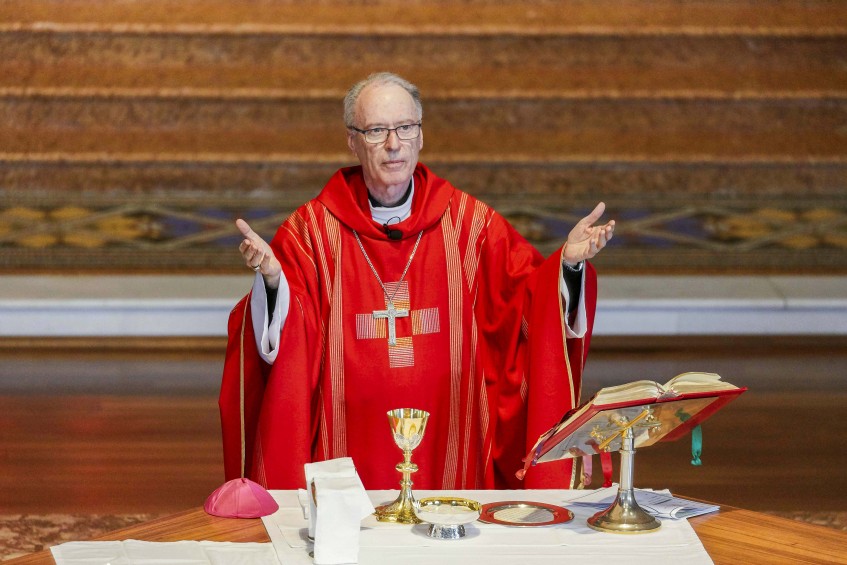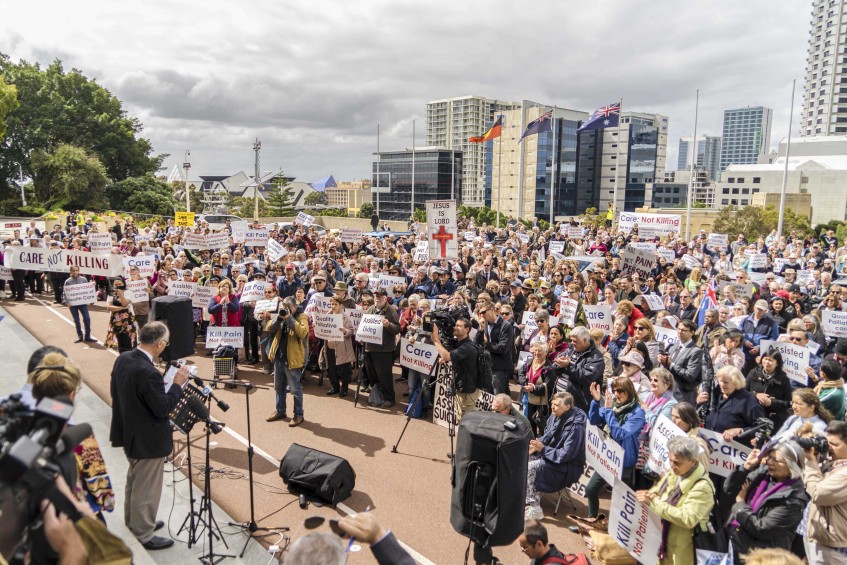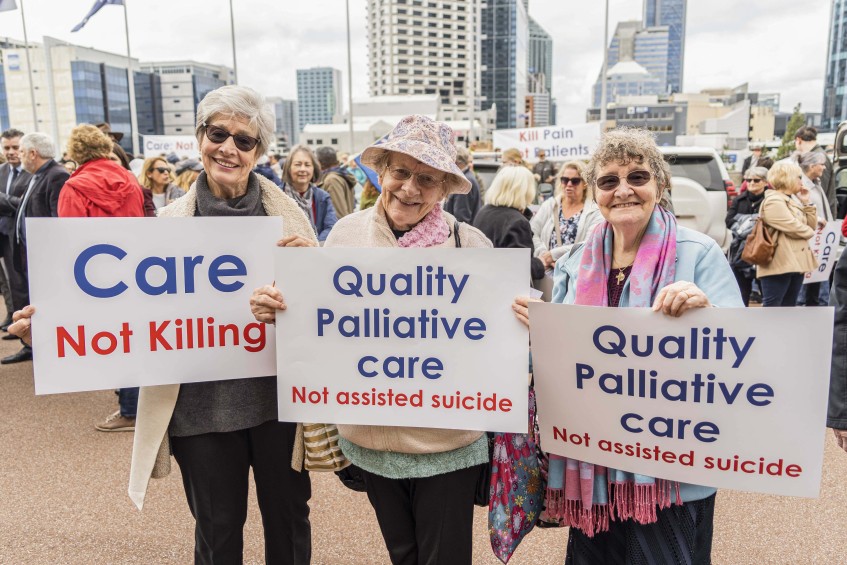Euthanasia Laws invoke need to pray, says Bishop Sproxton

Perth Auxiliary Bishop Don Sproxton has this week invited Perth Catholics to join with the entire Perth community in attending a prayer service in response to the Voluntary Assisted Dying legislation currently being debated by the West Australian government. Photo: Ron Tan.
By Jamie O’Brien
Perth Auxiliary Bishop Don Sproxton has this week invited Perth Catholics to join with the entire Perth community in attending a prayer service in response to the Voluntary Assisted Dying legislation currently being debated by the West Australian government.
The interfaith prayer service will be held on Sunday 29 September at 3pm at St Mary’s Cathedral, and an opportunity to pray for parliamentarians.
The legislation this week moved a significant step closer to becoming a reality, passing through the Lower House on Tuesday night 45-11.
Bishop Sproxton highlighted that the prayer service is not a rally or a political event, but the opportunity for people from all walks of life to come and pray for discernment and courage for our parliamentarians in the WA Legislative Assembly and Legislative Council.
“Respect for human life, from conception to natural death, is a fundamental pillar of what it means to be human and hence it is with sincere hearts that we should come together,” Bishop Sproxton said.
“A significant fact in this VAD debate is that decisions individuals make about their desire to determine the time and manner of their death has implications beyond their own lives,” he said.

Perth Catholics recently attended a rally at Parliament House in opposition to the VAD laws. Photo: Josh Low
Bishop Sproxton went on to say that all of us - governments, churches, institutions, families, individuals - must accept responsibility to truly care for, and support people throughout their lives, and especially as they come close to death.
“How can we strengthen and support those many institutions in our society which can help us maintain and develop a deep sense of compassion, generosity, and a ready acceptance of our mutual responsibility for each other,” Bishop Sproxton questioned.
“All parishioners and congregations will be welcome at this event as we face this significant moral issue, reminding us of the importance of careful listening, informed dialogue and prayerful discernment.
The vote in the Legislative Assembly sets the stage for a final decision in the Upper House of State Parliament, where the outcome is expected to be much tighter.
The outcome came after an extensive debate both inside and outside Parliament, with Lower House MPs spending close to 70 hours debating the bill — including an all-night sitting that was one of the longest WA's Parliament has seen in decades.

Perth Catholics recently attended a rally at Parliament House in opposition to the VAD laws. Photo: Josh Low
Police Minister Michelle Roberts and Energy Minister Bill Johnston were among the most prominent opponents of the bill, with critics arguing WA's proposal is less safe than the laws in place in Victoria due to some safeguards not being included.
Opposition Leader Liza Harvey also voted against the bill, but said she would support it if the Upper House agreed to an amendment that would prohibit doctors raising assisted dying with a patient.
If the Legislative Council (Upper House) also approves the Labor Government's proposed laws, WA will become just the second Australian state — after Victoria — to legalise voluntary assisted dying.
The Government needs 18 votes to get the bill through the Upper House, with 16 MPs known to be firmly in favour of it and several more still on the fence.
Several attempts to amend the WA bill to include safeguards in the Victorian legislation were voted down by the Government.
The WA proposal would give terminally ill West Australian adults, likely to die within six months, the right to access voluntary euthanasia.
